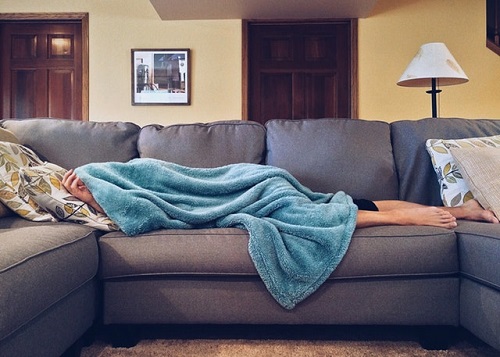 Sleeping Disorders do not just keep you awake when you should be sleeping, they also make you feel uncomfortable, thereby reducing your sleep quality. This haunts approximately 70 million people in US who have sleep issues, especially since better quality and more hours of sleep are needed to cope with aging.
Sleeping Disorders do not just keep you awake when you should be sleeping, they also make you feel uncomfortable, thereby reducing your sleep quality. This haunts approximately 70 million people in US who have sleep issues, especially since better quality and more hours of sleep are needed to cope with aging.
The existence of sleeping problems does not necessarily mean that they are a symptom of any medical or psychological illness. All of these are part of the normal aging process. While you grow older, sleeping habits, patterns and hours also change. But the hours of sleep needed by the body almost remain the same whether you’re a child or a senior. However, if you have existing conditions known to you, these may contribute to sleep disturbance.
It is not easy waking up while the body has not recovered from the wear and tear of daily life. You might not feel well or get moody and lose the will to do anything the following day. It can spoil your whole day. Good thing there are several ways to combat these problems and get a start on a night of good sleep. Here are some proven methods for senior citizens who are dealing with sleeping problems.
Doctor’s Visit
Nobody knows better how to end your agony than a specialist in sleeping disturbance. Make an appointment with your doctor or an expert. Tell them specifically your problems, bring your sleep diary, and discuss the discomfort it brings you. Sleeping pills can be a very tempting solution. While they may bring relief for one day or a few nights, what you really need is a long-term solution. And a sleep doctor can give you advice on how to achieve that.
Sleep Study
If your doctor thinks there is a sleep disorder, then he or she will conduct a sleep study or polysomnography to further examine your sleeping patterns and behavior. This helps the physician to diagnose the type of sleep illness, if there is any. A sleep study is conducted in a sleep lab where a doctor monitors you while you sleep. While in slumber, an EEG monitors brain activity, sleep cycle, REM stages, snoring, eye and body movements, and heart and breathing rates.
Cannabidiol
Cannabidiol or CBD is an essential component of medical marijuana derived directly from the hemp plant. Because of its significance in medical treatments, all 50 states have legalized CBD. Research on cannabidiol and sleep habits suggests that CBD has been proven to treat insomnia and other sleep disorders. Also, it helps people to enjoy deep sleep and feel more relaxed. A report from the World Health Organization in 2017 has concluded that CBD is safe and does not appear to have abuse potential.
Therapy
Another non-pharmaceutical way to treat sleep disorders is through behavioral therapy which takes several weeks. The therapy includes developing good sleep habits and making changes to bad behavior that can keep you from a good night’s sleep. It also has techniques that allow you to control or eliminate anxieties and negative thoughts that keep your eyes open.


Comments